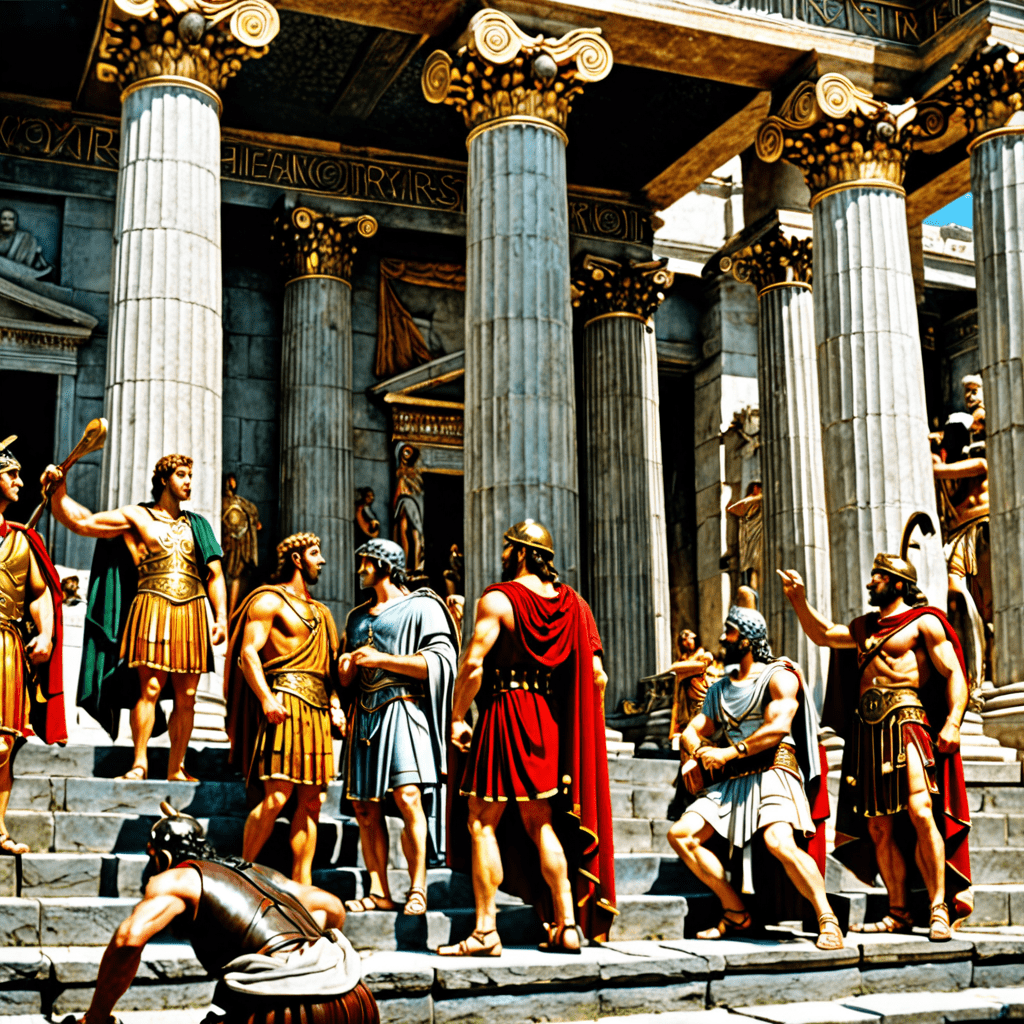The Influence of Roman Mythology on Roman Leadership Styles
As a civilization rooted in rich mythological tales, Roman culture was significantly influenced by its myths and legends. This influence extended to various aspects of Roman society, including the development of distinct leadership styles. Let’s delve into how Roman mythology shaped the leadership ethos of ancient Rome.
1. Mythological Influences on Leadership Virtues
In Roman mythology, leaders were often portrayed as embodying virtues such as wisdom, courage, and foresight. These traits were highly esteemed in Roman society and reflected in the leadership styles of Roman emperors and military commanders. For example, the stories of mythical figures like Jupiter, who possessed supreme authority and wisdom, may have inspired Roman leaders to strive for similar qualities.
2. Mythical Archetypes in Roman Leadership
Mythological archetypes, such as the hero and the wise ruler, played a crucial role in shaping Roman leaders’ self-perception and public image. Emperors often sought to align themselves with legendary figures like Hercules or Mars to project strength, valor, and divinely ordained leadership. By mirroring these archetypes, Roman leaders solidified their authority and legitimacy in the eyes of the populace.
3. Divine Justification of Authority
Roman mythology provided a framework for legitimizing the authority of leaders through divine ancestry or favor. Emperors often aligned themselves with gods and goddesses in myths to reinforce their right to rule. By invoking divine connections, leaders justified their actions and decisions as being sanctioned by higher powers, thereby solidifying their grip on power and inspiring loyalty among the masses.
4. Symbolism and Rituals in Leadership Practices
Ancient Roman leadership was intertwined with symbolism and religious rituals derived from mythology. Emperors utilized ceremonies and public displays that echoed mythological themes to emphasize their role as semi-divine rulers. By employing symbolism from Roman myths, leaders created a sense of awe and reverence around their authority, effectively maintaining control and prestige within Roman society.
Overall, the influence of Roman mythology on leadership styles helped shape the guiding principles and self-presentation of Roman leaders throughout history. By drawing upon mythical narratives and archetypes, Roman leaders cultivated an aura of strength, wisdom, and legitimacy that resonated with their subjects and ensured their enduring impact on the Roman Empire.
Frequently Asked Questions about the Influence of Roman Mythology on Roman Leadership Styles
What role did Roman mythology play in shaping leadership styles in ancient Rome?
Roman mythology served as a foundation for Roman leadership, with leaders often emulating virtues and qualities of gods and legendary figures.
How did Roman myths influence the concept of authority and power in Roman leadership?
Roman myths portrayed gods as powerful yet at times flawed beings, influencing leaders to embody strength, wisdom, and charisma in their approach to governance.
Were there specific Roman gods or myths that particularly influenced Roman leadership styles?
Yes, gods like Jupiter, Mars, and Minerva represented qualities such as leadership, war strategy, and wisdom, which were often mirrored in the leadership styles of Roman rulers.
Did Roman leaders use myths for political purposes or to legitimize their authority?
Indeed, Roman leaders utilized myths to create a sense of connection to divine origins, enhancing their authority and justifying their rule in the eyes of the Roman people.
How did the influence of Roman mythology on leadership styles contribute to the longevity of the Roman Empire?
By aligning leadership with powerful mythical figures, Roman rulers instilled a sense of tradition and continuity, fostering stability and unity that contributed to the longevity of the Roman Empire.





